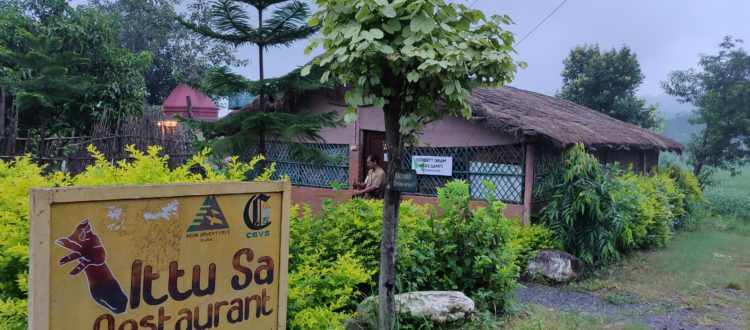Empowered Communities-The Drivers of Conservation Initiatives
What is the reason behind the dwindling of natural resources? Should we really worry about natural resources running out or is there enough to go around? The greed for more seems unstoppable and the idea of living in the present has been taken way too seriously. Nature provides limited resource base and unsustainable use of resources is freighted with consequences. The magnitude of the issue is humongous and the assault on nature continues. The twenty-first-century threats to the environment include fragmentation of pristine habitats, habitat conversion and urbanization, climate change, hunting and poaching, the disappearance of wildlife corridors and in addition to these there are many others.
Conservationists across the globe have been using community-led conservation approach by collaborating with local and indigenous communities which are the best stewards of natural resources. The well-being and livelihood of these communities living in close association with nature directly depend on sustainable use of natural resources and therefore are best partners and strong advocates for conservation.
A couple of months back, I had a chance to visit Uttarakhand, India through Wildlife Trust of India’s (WTI) Right of Passage: Project which aims to protect the future of Asian elephants by securing 101 elephant corridors across 11 states of India. During my visit, I interacted with one such united community devoted to protect the environment and conserve the natural and cultural heritage. Following the principles of Jim Corbett and realizing his dreams, the community of Chhoti Haldwani, a small village in the Kaladhungi town of Uttarakhand, India established Corbett Gram Vikas Samiti (CGVS) in 2002. Jim Corbett, who in his middle age converted from being a hunter to a conservationist owned Chhoti Haldwani and bought this small hamlet in 1915. From the past 17 years, members of CGVS offer nature-guide services, heritage walks, bird-watching, home-stays as a part of their community-based programs.
[acx_slideshow name=”paridhi”]
I am enamoured of serene places, stunning landscapes distant from the city hustle and the ones which bring me closer to nature. I had a delightful experience of staying in a home-stay at Chhoti Haldwani. The distinctive huts constructed with locally available material had a simplistic appeal and homely ambience. Accompanied by Mr Mohan Pandey, a trained nature guide, I headed to explore the famous Kaladhungi Nahar trail the following day. The early morning walk through the trail was filled with tranquility. Walking through the wilderness, I saw high rising trees, grass laden with dew drops, herd the music of Boar river and the chirping sound of birds. The pristine forest had a sound of its own.
It was indeed inspiring to interact with these people who are true to their roots and are motivated to preserve their culture and work towards protecting the natural heritage which otherwise is being exploited in the present times. Wildlife Trust of India is working towards empowering such local stakeholders through the formation and deployment of a cadre of Green Corridor Champions (GCCs)-community-based organizations or groups of individuals which will work like the eyes, ears, and voice of corridors. With the purpose to strengthen community-based engagement, the members of Corbett Gram Vikas Samiti were trained and deployed as the Green Corridor Champions in September 2018 for monitoring Fatehpur- Gadgadia corridor, one of the 11 elephant corridors identified in the state of Uttarakhand. Since then, the CGVS in partnership with WTI has been actively working to not only monitor the movement of elephants and other wildlife inside the corridor but to also sensitize, motivate and mobilize local communities, school children and relevant authorities on the importance of giving Right of Passage to our National Heritage Animal- the Asian elephant and protecting its habitat.
A fairly large population inhabiting concrete jungles often fail to realize the importance of conservation. Working together towards the shared vision for a more secure and resilient future to keep the wild lands ‘wild’ along with these local and indigenous people will not only drive conservation initiatives but will also empower these communities by creating a sense of pride and ownership amongst them.
Paridhi Jain
Programme Officer (Biologist) Wild Lands
Wildlife Trust of India









